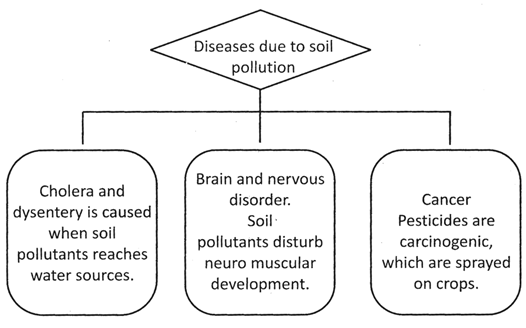
One definition of climate change is "an increase in average long-term weather conditions caused by human activities". These changes can be caused by many factors, including the emission greenhouse gases. The economy as well the health of people can be affected by climate changes. This is a global problem that will have an impact on our daily lives. Understanding the science behind climate change can help all citizens respond to it.
Many scientists are researching global warming. Climate modeling is a method of predicting how temperature will change over time. Some studies project changes in precipitation or snowfall. Scientists are also finding evidence that ocean acidification as well as sea level rising are real.

Extreme weather conditions are becoming more common due to global warming. They can also be much more intense. Increasing amounts of carbon are being released into the atmosphere as a result of fossil fuel burning and industrialization.
Additional factors that contribute to climate changes include short-term temperatures variability, long term temperature variability, ocean acidification, and greenhouse gases. However, the main cause of climate change is human activity.
Scientists are increasingly convinced of the fact that global warming is caused by the burning of fossil energy. The industrialized countries have been responsible for almost all global annual greenhouse gas (GHG), emissions in recent years. Many of these countries have established reduction targets but are not meeting them. Therefore, talks are ongoing to identify more specific emission reduction targets that industrialized nations can achieve.
When it comes to climate change, interpreters must understand the full range of perspectives, cultural influences, and scientific explanations. If a climate scientist discusses climate change in terms the human population, then the interpreter must be familiar with the economic, political, and social dimensions of the topic. It is important to keep up with the most recent information.

The United States Geological Survey defines the term global warming as an increase or decrease in global temperatures. Climate models predict that changes in the ice and snow may also occur. Other changes can also be caused by climate change to ecosystems and biodiversity. Additionally, climate change will create economic challenges.
In 1992, the United Nations Framework Convention on Climate Change was established. The Rio Earth Summit brought together industrialized nations to commit to reducing GHG emissions by 2000. But, this goal is not achievable. This is why seven of the largest economies in the world called upon the UN to set up an expert group to investigate the matter.
The IPCC (International Panel on Climate Change) is a research organization dedicated to the study of climate change. This body publishes reports about the science behind climate changes. Since 1990's publication of the initial report, the group has published dozens more reports. Each report is supported scientifically by experts from all over the globe.
While it may not be possible to prevent the adverse effects of climate change occurring, adaptation aims to reduce them. Technology, pollution mitigation, and conservation of natural resources can all be used to adapt.
FAQ
What are the possibilities for new technologies to combat climate change?
The possibilities of new technologies for addressing this global challenge are endless. Advanced science is making it possible to shift to a more sustainable world.
For lowering greenhouse gas levels, there are new carbon capture and sequestration methods. In addition to reducing emissions from livestock and soil degrading, enhanced agricultural practices can help reduce them. Smart grid technology can also be used with existing power infrastructure for an efficiency boost, and improved building design can help minimize energy consumption.
A new generation of synthetic biology techniques allows scientists to develop organisms capable of converting green fuels such as the CO2 laser into biofuel or other feedstock. This could revolutionize transportation if the market turns away from petrol-based vehicles toward zero-emission electric cars powered by clean sources.
Finally, increased investments in digital technology or AI can provide people with more information on their ecological footprints across borders. This will allow them to make more informed decisions regarding their consumption habits. Understanding our carbon production role is essential to help us all be better stewards.
What role does climate change play in greenhouse gas emissions?
Climate change is influenced by greenhouse gases. They act as an invisible shield around the Earth and trap infrared radiation, warming the atmosphere. Without them, our planet would be much cooler than it is now.
Human activity can cause greenhouse gases, such as the burning of fossil fuels and other industries that emit emissions. These activities will continue to increase heat trapping in the atmosphere. This will lead to increasing temperatures and extreme weather conditions.
Carbon dioxide (CO2), the most potent greenhouse gas, is released by fossil fuels like gas, oil, and coal. Important contributors are also methane and nitrousoxide (N2O), as well fluorinated gases (Fgases).
Due to human activities, the concentration of greenhouse gasses has increased dramatically since preindustrial time. This has led to global warming and an increase in temperatures all over the world, as well as in our oceans. It is also leading to changes such as intense storms and droughts; melting glaciers; and rising seas.
To avoid further damage from climate change, humans need to reduce their emissions of greenhouse gases by transitioning away from fossil fuels towards renewable energy sources like solar or wind power. Reforestation and other agricultural practices can be used to absorb more CO2 from air. These activities will lower the atmospheric concentrations of greenhouse gasses and make the Earth a more healthy place for all life.
How will climate change impact the world's oceans?
What will climate change do to the oceans and marine life of the world?
Climate change has been significantly affecting the world's oceans and the associated marine life since its onset. The loss of the ozone coating and constant oceanic temperature increase causes significant disruptions in marine ecosystems.
Unpredictable weather conditions and stronger storms are also linked to climate change, leading to extreme surges in sea levels that can prove deadly for coastal areas. Furthermore, changes in temperature may reduce oxygen levels in water systems resulting in "dead zones" where abundant marine life becomes sparse.
Climate change is also contributing to ocean acidification, caused by excess carbon dioxide released into the atmosphere that accumulates within the oceans. Ocean acidification increases pH, which can disrupt the essential functions of animals that are unable to adapt, such as crabs, oysters, clams and crabs.
Higher temperatures can also cause changes in natural habitats. They may shrink or change their geographical location, making it unhabitable for species that depend on them. The increase in ocean stresses accelerates the already high rates of extinction worldwide. This can lead to a severe imbalance among predators and prey, which could ultimately lead to complete extinction.
All ecosystems are affected by climate change. This can be directly or indirectly via evaporation, water volume reductions or sharp temperature shifts. These changes could have a devastating effect on sustainable development of marine activities and fisheries. Overall climate change continues one by one wiping out entire species from our planet transforming future lives on land but most importantly deep below the surface of our oceans.
Statistics
- This source accounts for about 10% of all the water that enters this highly productive farmland, including rivers and rain. (climate.nasa.gov)
- The 100 least-emitting countries generate 3 per cent of total emissions. (un.org)
- The 10 countries with the largest emissions contribute 68 percent. (un.org)
- This source accounts for about 10% of all the water that enters this highly productive farmland, including rivers and rain. (climate.nasa.gov)
- features Earth's average surface temperature in 2022 tied with 2015 as the fifth warmest on record, according to an analysis by NASA. (climate.nasa.gov)
External Links
How To
How to educate your community about climate change and mobilize action
There are many ways to learn about climate change education, including online resources and interactive tools, classroom activities, simulations and experiential learning programs. These are the essential elements of effective climate education:
-
Practical knowledge of the subject is essential for people to be able to make informed decisions.
-
demonstrating ways that individuals can make a difference
-
Involving participants in an open dialog about potential solutions
-
Inspiration through shared experiences that inspire action
Teachers can help communities to reduce their environmental footprints by offering comprehensive lessons in climate change for both adults and students.
A unique way to engage people in meaningful dialog is to link scientific research with real world examples. Participants can also witness positive outcomes from case studies and best practice, which can be used to inspire innovation and replicateable measures in their communities.
Participating in action-oriented activities within educational curriculums gives participants the mental tools they need to create campaigns, form petitions or take local actions. This empowers them to become agents for social and/or political transformation or sustainability improvement. Additionally, highlighting individual agency highlights the importance for participants in reducing greenhouse gas emissions and also showcases their collective contributions towards a bigger outcome. A key element in policy-making is to involve stakeholders as early as possible. This encourages their active involvement at every stage of the process and could result in better outcomes for all. Through concerted efforts at increasing public understanding of the impacts of climate change coupled with taking appropriate action on mitigating greenhouse gas emissions, we might be able to create an environment where these pressing matters are addressed urgently with attention applied where necessary most so that together we may one day be able to ensure successful implementation measures that will help us reach our collective goals out ahead time as well.